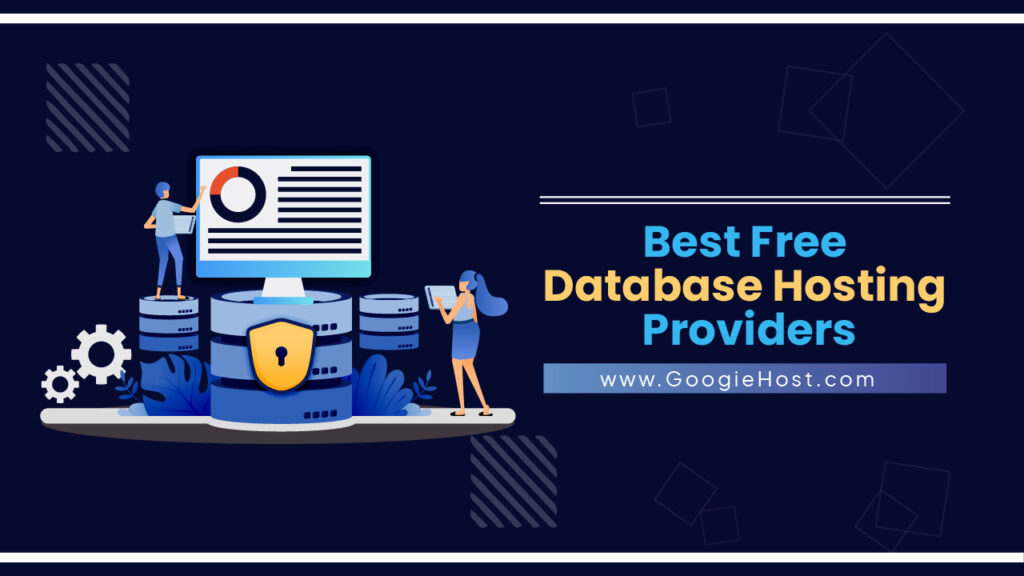Key Functions to Try To Find When Picking a Database Carrier
Picking a database provider is an essential choice that can considerably influence your company's data and procedures monitoring approach. Amongst the crucial attributes to consider are scalability alternatives, which guarantee that your system can adjust to expanding demands.
Scalability Options
When choosing a data source carrier, understanding scalability alternatives is crucial to ensuring that the chosen option can fit future growth. Scalability refers to the ability of a data source system to increase its capacity and performance in action to enhanced need. There are 2 primary types of scalability: vertical and straight.
Upright scalability, or "scaling up," entails boosting a single web server's resources, such as CPU, RAM, or storage. This method can be straightforward and cost-effective for smaller sized applications however may reach a limitation where further upgrades are also expensive or unwise.
Straight scalability, or "scaling out," involves including more servers to disperse the lots. This approach permits higher flexibility and can accommodate significant rises in data quantity and customer traffic (database provider). It is specifically advantageous for cloud-based data source remedies that can dynamically designate sources based upon demand

Safety Measures

When assessing security actions, take into consideration the implementation of security methods (database provider). Data-at-rest and data-in-transit file encryption are necessary to make certain that sensitive info stays secured, also in the event of a safety and security violation. In addition, search for companies that offer strong authentication mechanisms, such as multi-factor authentication (MFA), to better improve access control
Normal safety audits and compliance with industry standards, such as GDPR or HIPAA, are indicative of a service provider's commitment to information defense. In addition, ask about their incident response strategy; a robust plan can decrease the effect of any kind of prospective security event.
Performance Metrics
Evaluating performance metrics is necessary for companies to guarantee that their picked data source supplier fulfills operational needs. Key efficiency metrics include feedback time, throughput, and scalability, which collectively figure out the effectiveness of data source procedures under differing loads.
Feedback time is vital, as it shows how quickly the database can link process questions and return outcomes. Organizations ought to try to find metrics that show typical reaction times throughout top and off-peak hours. Throughput, usually measured in purchases per second (TPS), gives insight into the data source's ability to take care of high quantities of requests without performance deterioration.
Scalability analyzes the data source's capability to expand with the organization's requirements. A robust see this website database service provider should show upright and horizontal scaling abilities, permitting for seamless adjustments as demands fluctuate. In addition, comprehending latency, particularly in dispersed systems, can aid organizations assess the responsiveness of the data source throughout various geographical places.
Customer Support
Dependable customer support is a cornerstone of efficient data source administration, giving companies with the aid required to optimize and settle concerns performance. When picking a database company, reviewing the degree of client support they provide is vital. A robust support group should include multiple networks of interaction, such as phone, e-mail, and live chat, making sure that users can access help whenever they need it.
In addition, receptive support groups that are offered 24/7 considerably enhance the dependability of the database service. Prompt response times and effective resolution of problems can dramatically minimize downtime and increase general performance. It is additionally useful to think about the schedule of committed support personnel, that can offer tailored support based on an organization's certain needs.

Pricing Structure
When considering a database company, the pricing framework is a pivotal aspect that can dramatically affect a company's budget and overall approach. A adaptable and clear pricing model is vital for straightening the data source sets you back with company needs - database provider. Organizations must assess whether the pricing you could look here is based upon intake, per individual, or a flat rate, as each design can yield various monetary effects over time
It is essential to examine any kind of added prices connected with the company's services, such as information storage charges, transaction prices, and assistance costs. Some suppliers may offer tiered pricing, enabling scalability as the organization expands, while others could enforce rigorous limits that might come to be pricey as information demands increase.
In addition, companies need to take into consideration the long-lasting value of the data source service. While lower initial costs can be enticing, they may not represent future upgrades, upkeep charges, or combination expenses. Conducting a detailed cost-benefit evaluation will certainly help determine one of the most suitable prices framework that balances efficiency, scalability, and assistance, eventually guaranteeing that the picked database carrier aligns with the company's economic and functional goals.
Final Thought
In verdict, choosing a database supplier requires mindful factor to consider of various vital attributes. Assessing efficiency metrics enables the identification of effective data sources, and obtainable client support improves the overall customer experience.
Picking a database carrier is a critical decision that can significantly influence your company's procedures and information administration technique.When picking a data source company, understanding scalability options is essential to guaranteeing that the chosen option can accommodate future development. When picking a data source service provider, evaluating the degree of consumer assistance they provide is necessary.When considering a database service provider, the prices framework is a pivotal factor that can considerably affect a company's spending plan and overall technique. Performing a comprehensive cost-benefit analysis will aid recognize the most appropriate pricing structure that balances scalability, efficiency, and assistance, inevitably guaranteeing that the selected database provider lines up with the company's economic and functional objectives.